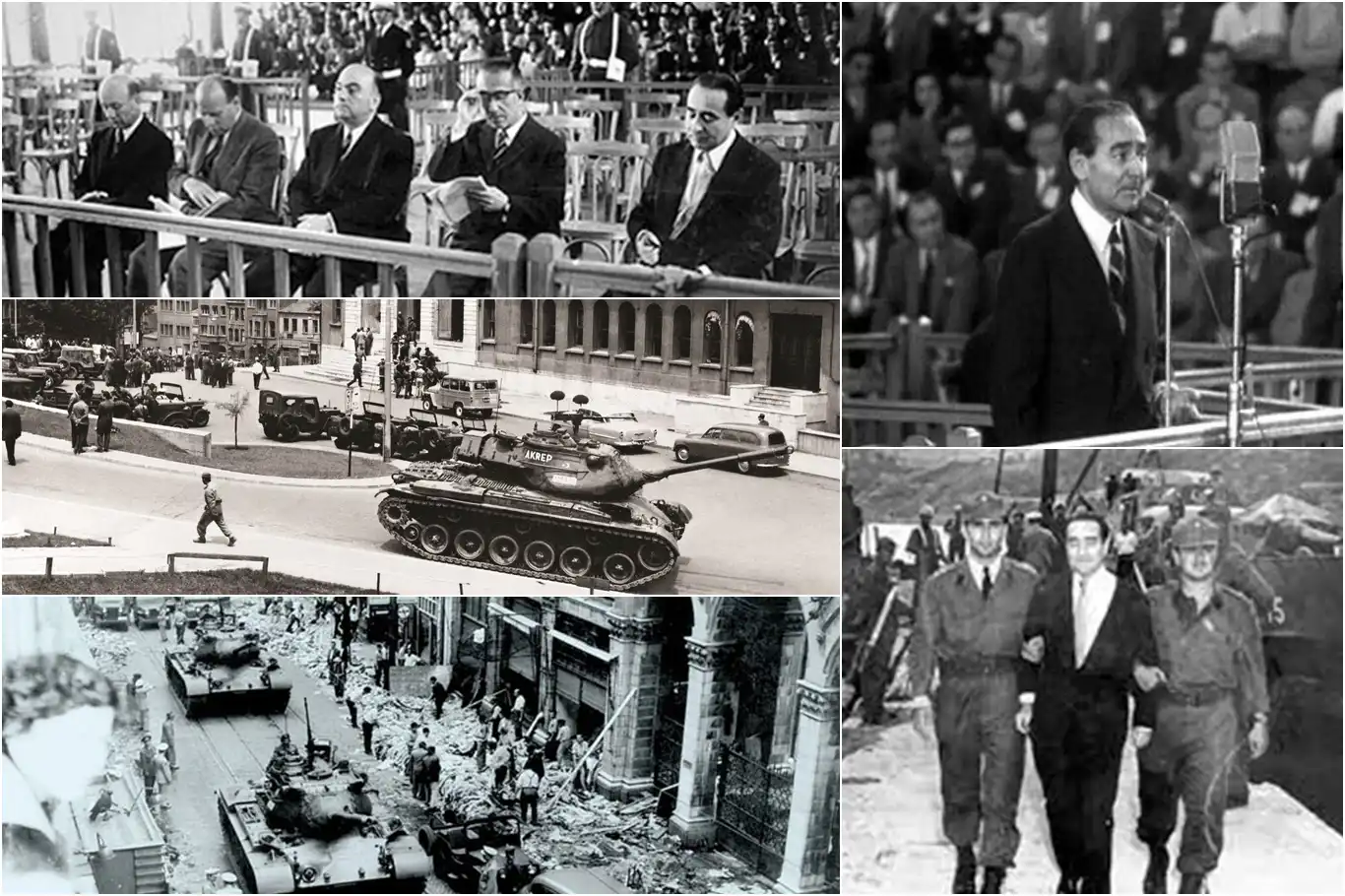May 27 Coup: A dark blow to Turkish democracy remembered 65 years on


Türkiye today marks the 63rd anniversary of the May 27, 1960 military coup—a day many regard as a deep betrayal of democracy, justice, and the national will.
What unfolded that early morning was not merely a military intervention, but the violent toppling of a democratically elected government and a harrowing assault on the sanctity of civilian rule.
The orchestrators of the coup, a group of 38 junior military officers acting outside the legitimate military chain of command, claimed they were rescuing the country from instability. In truth, they initiated a tragic era of military dominance that would haunt Turkish politics for decades. The plot was led by General Cemal Gürsel and operationally spearheaded by Colonel Alparslan Türkeş, who made the infamous radio broadcast on the morning of the coup.
“The Great Turkish Nation,” Türkeş declared, “Starting at 3:00 a.m. on May 27, the Turkish Armed Forces have taken control of the administration of the country.” What he described as a bloodless transition was, in fact, the beginning of a systematic purge of the country's democratic institutions.
Under the guise of restoring order, the junta suspended the constitution, disbanded Parliament, and arrested over 500 politicians and government officials. President Celal Bayar, Prime Minister Adnan Menderes, and several ministers were detained and subjected to show trials on the island of Yassıada, far from public scrutiny.
The trials, devoid of impartiality and legal fairness, culminated in death sentences for Menderes, Foreign Minister Fatin Rüştü Zorlu, and Finance Minister Hasan Polatkan. All three were executed on İmralı Island in September 1961. Their deaths were not simply judicial punishments but politically motivated acts of vengeance designed to send a chilling message to future civilian leaders.
Interior Minister Namık Gedik died under suspicious circumstances while in custody, officially reported as a suicide. Yet to this day, many doubt the veracity of that claim, believing it to be another example of the lawlessness that pervaded the junta's regime.
The coup had a profound impact on the Turkish state. More than 3,000 military officers were forced into early retirement. Hundreds of judges, prosecutors, and university professors were purged. The military, which had once stood as a disciplined institution under civilian authority, was now transformed into a political actor—a self-declared guardian of the republic, often above the law.
The junta appointed General Cemal Gürsel as head of state, prime minister, and minister of defense, effectively concentrating all executive authority into one unelected figure. The rule of law was suspended, and the people’s voice was silenced by curfews, censorship, and fear.
In the aftermath, the 1961 Constitution was drafted under military oversight. While it introduced certain liberal provisions and checks and balances, it also institutionalized military oversight over elected institutions. The newly formed National Security Council gave the military an official role in government, laying the groundwork for further interventions in 1971, 1980, and 1997.
Today, as Türkiye reflects on the May 27 coup, many view it as a foundational trauma in the nation’s political memory—a cautionary tale of how democracy can be derailed when those entrusted with arms turn them against the very people they are meant to defend.
Prime Minister Adnan Menderes is now widely remembered as a martyr of democracy. His legacy has been officially restored and honored by successive governments. Statues have been erected, memorials built, and his grave at Topkapı has become a site of pilgrimage for those who cherish the principle of governance by the people.
President Recep Tayyip Erdoğan has frequently referred to Menderes as a political inspiration, and in recent years, the Turkish state has intensified efforts to rehabilitate the memory of the victims of May 27 and confront the legacy of military tutelage.
"We will never forget May 27," President Erdoğan said at a memorial event in 2021. "It was a bullet fired at the heart of the nation. But our democracy has endured, and it will never again bow to tanks."
As Türkiye continues to navigate the challenges of democratic governance in the 21st century, the memory of May 27 stands as a somber reminder of the price paid for freedom—and the vigilance required to protect it. (ILKHA)
LEGAL WARNING: All rights of the published news, photos and videos are reserved by İlke Haber Ajansı Basın Yayın San. Trade A.Ş. Under no circumstances can all or part of the news, photos and videos be used without a written contract or subscription.
It has been thirty-two years since the village of Başbağlar, nestled in the mountainous region of Erzincan, Türkiye, was thrown into the depths of unimaginable horror.
As the world marks the 100th anniversary of the execution of Sheikh Said of Palu and his 47 companions, Muslims across the globe are gathering to honor a defining moment in Islamic resistance history.
The Hijrah—the historic migration of Prophet Muhammad (peace be upon him) from Mecca to Madinah in 622 CE—stands as a luminous milestone in Islamic history, igniting the flame of hope in the hearts of early Muslims and serving as an enduring example for all generations of believers.